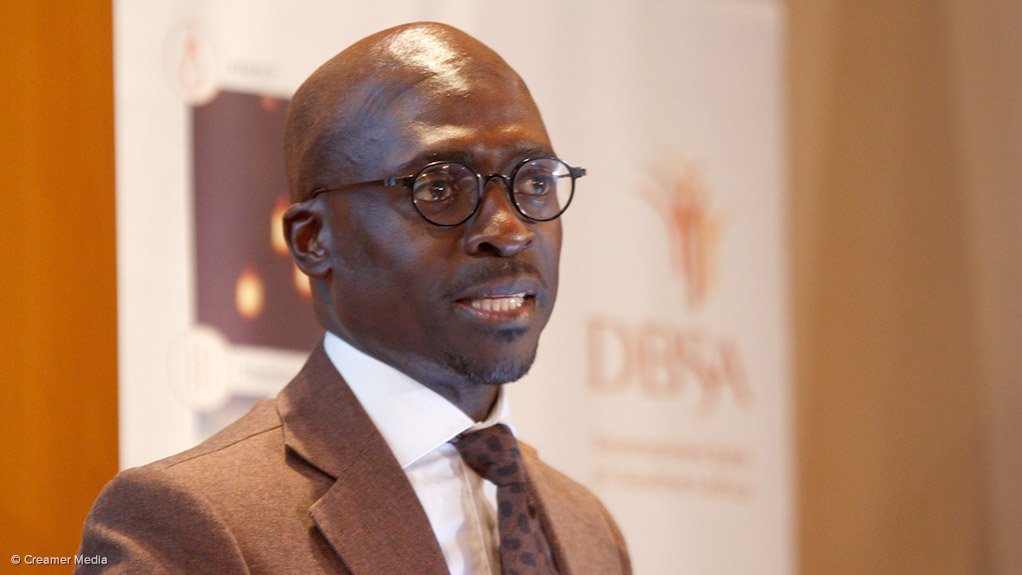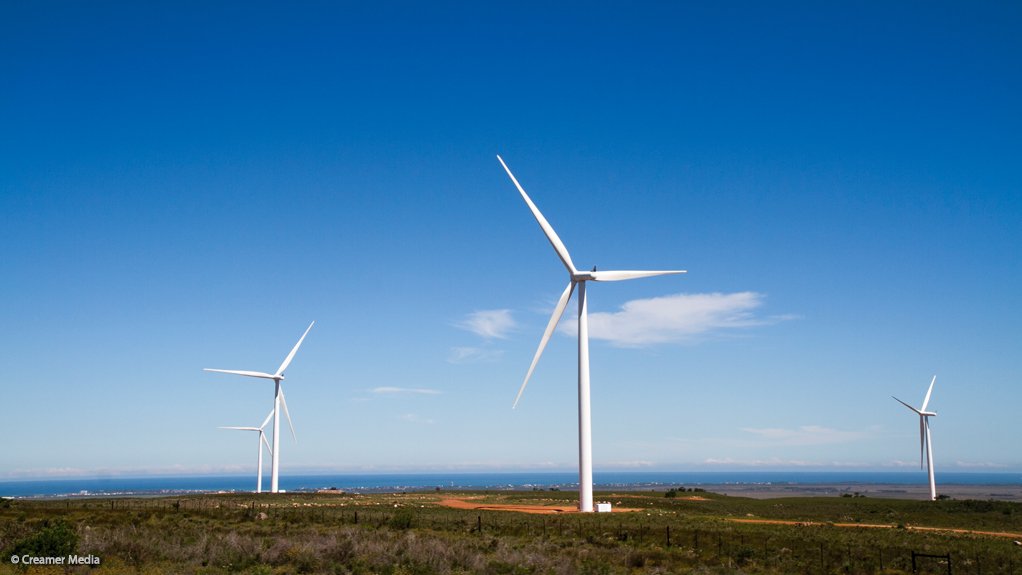The Development Bank of Southern Africa (DBSA) recorded a sharp fall in disbursements to R12.4-billion in 2017, from a record R17.1-billion in 2016, but has promised to "step up" its role as a catalyst of development in 2018, setting a R20-billion disbursement target for the year.
The development finance institution (DFI) had been targeting disbursements of around R16.5-billion in the year to March 31, 2017, and CEO Patrick Dlamini attributed the lower figure partly to a refusal by Eskom to sign power purchase agreements (PPAs) with renewable-energy independent power producers (IPPs). The DBSA had, until the PPA impasse emerged last year, played a leading role in funding black ownership and community participation in the IPP projects and had been injecting around R3-billion a year into the programme.
Group executive for strategy Mohan Vivekanandan stressed that the disbursement figure had also been affected by lower demand from the large metropolitan councils, to which disbursements had fallen from R7.5-billion in 2016 to R4.5-billion.
In addition, delays in reaching financial close on some large initiatives associated with the bank’s project-preparation activities had dampened the performance. Disbursements associated with project preparation came in at only R600-million, largely as a result of delays to finalising the multibillion-rand Gautrain rolling-stock expansion, where the DBSA has been appointed mandated lead arranger.
Finance Minister Malusi Gigaba, who is also the bank's governor, said he was both "disappointed and understanding" of DBSA's 2017 performance, stating that he naturally wanted the DFI to play a larger developmental and transformational role in light of the current fiscal pressures. However, he acknowledged the difficult environment in which the bank, as well as other State-owned companies, were operating.
Dlamini said the DBSA was in a strong position to expand its developmental impact, as well as catalyse investments by the private sector into public infrastructure; a position of strength that was underlined by acting CFO Dumisa Hlatshwayo.
Hlatshwayo highlighted the group's rise in profits to R2.8-billion in 2017, up from R2.6-billion, as well as its increase in net interest income to R3.7-billion, from R3.2-billion. Sustainable earnings, measured by adjusting net profit adjusted for foreign exchange and revaluation of financial instruments, rose 157% to R3.6-billion.
There had also been a decline in the bank's debt-equity ratio to 158%, from over 217% in 2013.
Hlatshwayo added that the bank’s funding plan had not yet been seriously affected by South Africa’s recent credit-rating downgrade, which had, in turn, resulted in a downward revision to DBSA’s rating. “The short-term risk associated with the downgrade to the DBSA relates to the dollar book and, at this point, is largely restricted to a nonmaterial incremental cost to the organisation.”
However, for the time being, the appetite for DBSA debt remained strong.
Therefore, Dlamini expressed optimism that the DFI had the financial wherewithal to increase on-balance-sheet disbursements to R20-billion in 2018, while "crowding in a further R40-billion of private funding in support of infrastructure investments in both South Africa and the region.
By 2020, the aim was to be facilitating infrastructure investments worth R100-billion a year, with the DBSA balance sheet contributing around R30-billion directly. In 2017, the DBSA estimated that its disbursements of R12.4-billion supported investments collectively worth R48-billion.
Chairperson Jabu Moleketi said that while the figures appeared large in "rands", there was growing potential to leverage "hard currency" funding, as more and more foreign investors took an interest in African infrastructure projects.
EMAIL THIS ARTICLE SAVE THIS ARTICLE ARTICLE ENQUIRY
To subscribe email subscriptions@creamermedia.co.za or click here
To advertise email advertising@creamermedia.co.za or click here














